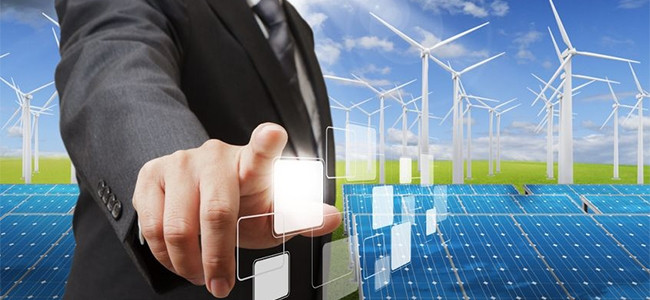
The South African Wind Energy Association (SAWEA) has lambasted the power utility and the National Energy Regulator (NERSA) over lack of transparency.
Eskom and NERSA yesterday postponed SAWEA's bid to have the utility investigated over its "continued unwillingness to fulfil its mandate as purchaser of power duly procured by the Department of Energy".
Yesterday, Eskom asked NERSA for a 19.9% tariff hike for 2018/19. In a statement issued yesterday, Eskom said it welcomes NERSA's approval of the consultation process for Eskom's 2018/19 revenue application.
Constitutional principles
SAWEA and its legal counsel have strongly objected to both Eskom's lack of engagement and the national regulator's refusal to open yesterday's hearing to the public, which is inconsistent with SA's constitutional principles of openness, transparency and fairness, as well as NERSA's own legislation, the wind body says.
It points out SAWEA declared a power procurement dispute in October 2016, requesting the regulator to undertake an investigation into Eskom's continued unwillingness to fulfil its mandate as purchaser of power duly procured by the Department of Energy.
In March 2017, the national regulator responded to this complaint by launching a formal investigation into Eskom's conduct. A hearing for both parties to make submissions was scheduled for 14 September.
However, SAWEA says the hearing began on two disappointing notes: firstly, Eskom arrived with a plea for postponement, citing "communications challenges" that had prevented the utility from adequately preparing its submissions, both written and verbal, despite several correspondences between NERSA and the parties, clearly indicating the timeframes to be adhered to.
Secondly, NERSA had declared the hearing closed to the public, and would not allow members of media who had arrived, to join the hearing, the organisation charges.
SAWEA and its legal counsel objected strongly to both these points, arguing that in the first case, Eskom had a total of 11 months to take the necessary steps to engage with this matter, and in the second case, refusing to open the hearing to the public would be inconsistent with constitutional principles of openness, transparency and fairness, as well as NERSA's own legislation.
"The hearing that was meant to take place today, 11 months after SAWEA's complaint was first submitted, has now been postponed by two weeks. It is worth noting that NERSA cautioned Eskom to adhere to this timeframe, given the prejudice already suffered by those whose interests SAWEA represents.
"SAWEA is disappointed that the national utility has not taken seriously the major negative effects of the ongoing delay on South Africa's young renewable energy industry. It is an indication of the depth of poor governance at Eskom, that such a serious matter has suffered the fate of being a casualty of 'communications challenges' at this state-owned enterprise," it adds.
The reasons provided by the national utility for its long-standing refusal to honour duly procured power purchases must surely be deemed to be in the national interest, SAWEA points out.
The organisation says it hopes NERSA will recognise that accountability, through transparency, is the cornerstone of SA's Constitution. Matters of such grave national interest such as the dispute declared by SAWEA should not be considered behind closed doors, it states.
Revenue application
Eskom's multi-year price determination cycle comes to an end on 31 March 2018. The energy regulator approved that Eskom will submit a revenue application for a single year for the period 1 April 2018 to 31 March 2019.
"Eskom understands that NERSA, in accordance with its mandate, will evaluate the revenue application and allow for public consultation before making a decision on the allowed revenue. We are committed to participate in NERSA's process and look forward to further engagement on the revenue application with stakeholders," says Calib Cassim, Eskom's acting CFO.
Meanwhile, civic organisation the Organisation Undoing Tax Abuse (OUTA) believes energy regulator NERSA should not have allowed Eskom to block public access to coal costs in its tariff application.
Ted Blom, OUTA's portfolio director for energy, says Eskom's electricity tariff increase application still lacks the facts explaining why the increase is needed.
"They have blacked out all the critical information on the application form. We are deeply concerned by this retrogressive step, due to the mismanagement and corruption taking place at Eskom," says Blom.
OUTA has also campaigned for greater transparency in the pricing application, opposing Eskom's recent application for secrecy in parts of it. NERSA ruled that most of the information Eskom wanted to keep secret should be provided to ensure informed decision-making, but NERSA has now agreed to allow Eskom to block sections of that additional information from the public.
"Keeping coal costs secret is not in the public interest. This is the very nub of where corruption worth billions of rands is taking place annually. This is the first area of corruption that I started exposing 10 years ago," says Blom.
Share